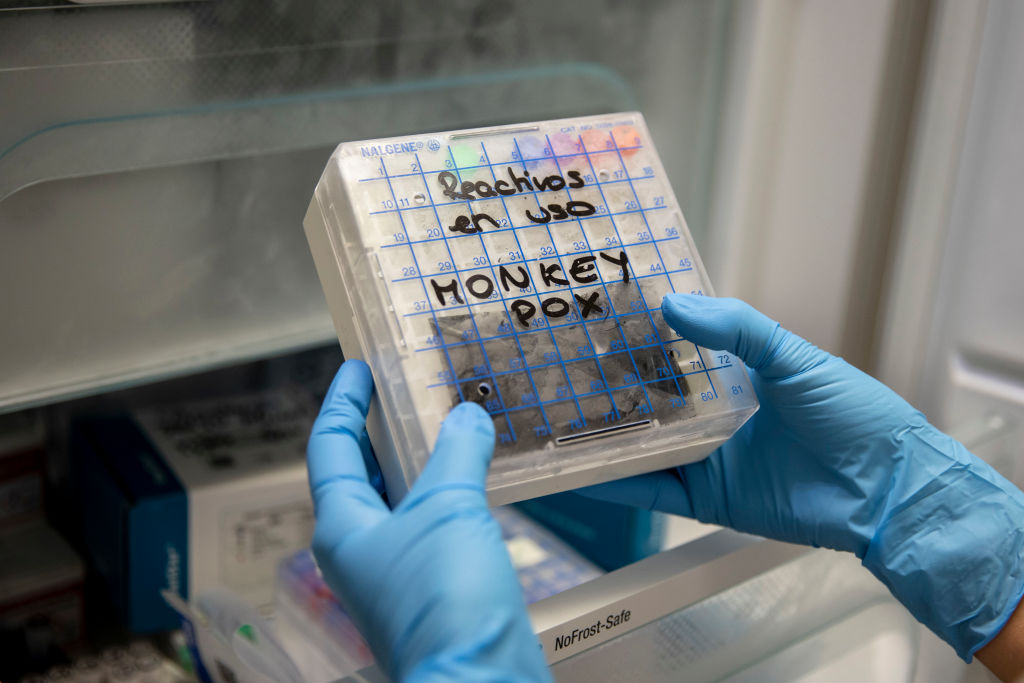
Monkeypox and COVID-19 are different in many ways. Though relatively rare, monkeypox has been around for decades; indeed, it has become endemic to parts of central and western Africa. There is already a vaccine that can prevent infection and research to show that monkeypox typically spreads via close or prolonged physical contact with an infectious person or their bodily fluids—meaning, based on what researchers know now, it probably won’t spread as widely or as fast as SARS-CoV-2, which can travel invisibly through the air.
Nonetheless, there has been some deja vu as monkeypox cases tick upward, reaching 780 in 27 non-endemic countries as of the World Health Organization’s latest update two days ago. Once again, a virus unknown to most people is spreading across the globe. Once again, it is turning up in people without relevant travel history or known exposure to a sick person. And once again, some experts say, public-health authorities are missing chances to block its path.
Monkeypox testing in the U.S. currently runs through the U.S. Centers for Disease Control and Prevention (CDC), as was true of COVID-19 testing at the start of the pandemic. Joseph Osmundson, a clinical assistant professor of biology at New York University who co-authored a recent New York Times opinion piece on monkeypox response, says regulators need to start preparing now, while cases are low, to be ready in the event that changes. That means clearing the way for hospitals and laboratories to do their own testing, rather than sending everything to the CDC.
And in the meantime, it’s crucial to educate the public about signs of monkeypox and encourage health care providers to submit any possible cases to the CDC for testing, Osmundson says. “We really have no idea what the scale is right now,” he says. “We know it’s more than we’re detecting, but we have no idea how much more.”
Dr. Boghuma Kabisen Titanji, an infectious disease doctor at Emory University, recently told the Atlantic that experts should not fall into a certainty trap with monkeypox, speaking too confidently about an outbreak they are still learning much about. “If we’ve learned anything from COVID, it’s to have humility,” she said.
Some early statements about COVID-19—that masks wouldn’t work, for example—calcified into misinformation public-health authorities are still trying to fight. This time, experts must be careful to acknowledge what they do and do not know, and be clear that guidance may change. Osmundson has been encouraged that, with monkeypox, the CDC has largely deferred to experts who are gay, bisexual, or men who have sex with men on how best to communicate, given that people from those communities have been disproportionately affected so far. That may be a lesson learned from the COVID-19 pandemic, which has highlighted the importance of tailoring the right message to the right audience, particularly where vaccines are concerned.
The pandemic has strengthened some other public-health responses, too. The Biden Administration requested almost $90 billion to pay for things like laboratory surveillance networks and the development of testing and treatment infrastructure starting in fiscal year 2023. In a June 2 interview with STAT, Dr. Raj Panjabi, who directs the White House’s global health security efforts, said his team is working on plans to scale up monkeypox testing and vaccine production if necessary, not just in the U.S. but also around the world.
That last piece is crucial. Of all the lessons COVID-19 has taught us, one of the biggest is that a threat to one part of the globe is a threat to all. It’s too soon to say how big a threat monkeypox will be. But the time to act is now, Osmundson says. “Actions when it doesn’t seem that bad are the ones that have the largest effect,” he says.
More Must-Reads from TIME
- Introducing the 2024 TIME100 Next
- The Reinvention of J.D. Vance
- How to Survive Election Season Without Losing Your Mind
- Welcome to the Golden Age of Scams
- Did the Pandemic Break Our Brains?
- The Many Lives of Jack Antonoff
- 33 True Crime Documentaries That Shaped the Genre
- Why Gut Health Issues Are More Common in Women
Write to Jamie Ducharme at jamie.ducharme@time.com